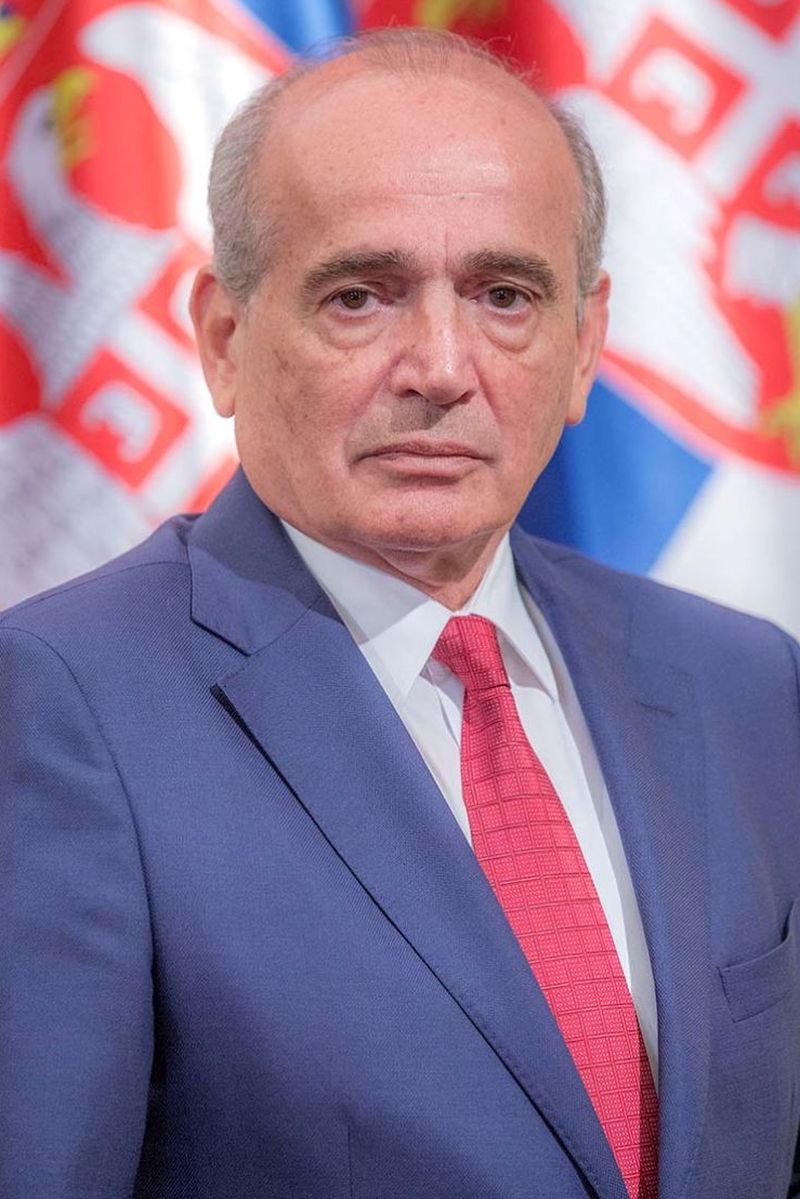Members of government
Milan Krkobabić
Minister of Rural Welfare
Born in 1952 in Kačarevo. He graduated from the Faculty of Economics in Belgrade.
He gained working and professional experience in banking and financial job positions – from a bank trainee to a director of a financial organisation.
From 2008, when he was first elected a councillor in the Belgrade City Assembly, until 2012, he served as Deputy Mayor of Belgrade.
In that period, he created a recognisable social policy of the City of Belgrade, which became a model for other cities in Serbia and which includes the 13th monthly pension, a special type of assistance for the most vulnerable pensioners, free city transport for all citizens older than 65, care for people with disabilities and children with disabilities, as well as addressing the problem of refugees and displaced persons.
He is the initiator and creator of the first complete concept of social entrepreneurship in Serbia, which, in addition to the public and real sector of the economy, also opens a third sector – social entrepreneurship.
In September 2012, he was appointed General Manager of public postal company Pošta Srbije, and he remained in this position until August 2016.
In this period, this company rose to the ranks of the most successful and profitable in the country, with its annual net profit tripling. In the same period, Pošta Srbije injected around €100 million into the budget of the Republic of Serbia.
In October 2014, the Belgrade Regional Postal and Logistics Centre (RPLC) was completed, a facility of Pošta Srbije of strategic importance that represents a unique technical and technological breakthrough applied in the 21st century, in this part of Europe.
The action during which he opened 52 new post offices in almost all parts of Serbia in 52 weeks, as well as project “The State of Serbia in the Villages of Serbia”, which brought a post office, state administration and a primary health care centre in the villages of 11 underdeveloped municipalities of Serbia, was particularly noticed.
From August 2016, he served as Minister without portfolio in the Serbian government in charge of regional development and coordination of the work of public companies.
In June 2017, in cooperation with the Academic Rural Committee of the Serbian Academy of Sciences and Arts, he launched a cooperative renewal programme. Since the beginning of the implementation of this programme better known as “500 Cooperatives in 500 Villages”, in the period from 2017 to 2022, 1,100 new cooperatives were established in Serbia, and the work of 207 cooperatives throughout the territory of the Republic of Serbia was supported with incentives.
In cooperation with the Academic Rural Committee of the Serbian Academy of Sciences and Arts in June 2019, he initiated the establishment of the National Team for the Revival of the Village of Serbia. In 2020, the team created the “National Programme for the Revival of the Villages of Serbia”, which is the starting point for the adoption of comprehensive measures, the implementation of which would encourage the revival of villages in Serbia.
After the formation of the Ministry of Rural Welfare in 2020, he was elected as the line minister, and in 2022 he was re-elected to the same office, which he held until May 2024. He served in the same role in the term from May 2024 to April 2025.
In the period from 2020 to 2024, in addition to cooperatives, in the area of livelihood, grant programmes have been successfully implemented for the purchase of a country house with land. In 1,187 villages in the territory of 125 local self-government units, people moved into 3,520 houses. As a result, more than 16,000 people acquired a new home.
At the same time, the Programme for solving the mobility of the rural population is being implemented. So far, 78 local self-government units, primarily those belonging to devastated and underdeveloped areas, have received grants for the purchase of minibuses. In this way, daily transportation is provided for the population in hilly and mountainous areas.
The programme “Michaelmas Meetings of Villages” is successfully being implemented too. In the given period, almost all local self-government units have been included, with a record number of participants and visitors. More than 2,500 villages participated and competed in a wide variety of activities and promotion of the specificities of their regions, through 363 events.
He is one of the founders and President of the PUPS – Party of United Pensioners, Farmers and Proletarians of Serbia – Solidarity and Justice.
In the period from 2008 to 2020, he was elected a councillor in the Belgrade City Assembly and a member of the Serbian parliament for several terms, and he was also elected president of the PUPS parliamentary group.
Married, father of two sons.

